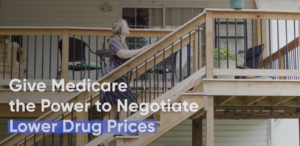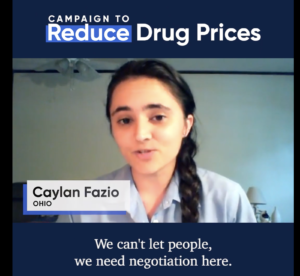Yesterday, Senator Reverend Raphael Warnock (D-GA) along with Senators Jon Ossoff (D-GA) and Tammy Baldwin (D-WI) introduced legislation to create a federal program extending coverage to millions of people stuck in the coverage gap in states where Republicans have refused to adopt Medicaid expansion. For years, Republican lawmakers have waged a war against Medicaid expansion despite overwhelming evidence that it reduces racial disparities in health care, strengthens economies, and saves lives. And despite robust incentives included in President Biden’s American Rescue Plan, Republicans in 12 states have refused to act, underscoring the need for a federal solution. In response, Protect Our Care Chair Leslie Dach issued the following statement:
“Closing the Medicaid coverage gap is a no-brainer for lawmakers looking to profoundly improve health care access in this country. This legislation demonstrates Democrats’ commitment to expanding coverage to millions of people and builds momentum as Congress debates closing the gap in forthcoming infrastructure legislation. We commend Senators Warnock, Ossoff and Baldwin for stepping in after Republican politicians failed to do the right thing for their constituents.”
COVERAGE
AP: Senators Seek Medicaid-Like Plan To Cover Holdout States. “The bill would mandate a new health insurance plan that looks just like Medicaid offered to residents in holdout states. The plan would require no premiums and only small copayments, while those costs can be much higher for individuals on the marketplace. People can enroll in Medicaid year-round, while marketplace enrollment is typically only in the fall, or when someone’s circumstances change.” [7/12/21]
- The Bill Would Provide Premium Free Health Access. “The plan would require no premiums and only small copayments, while those costs can be much higher for individuals on the marketplace. People can enroll in Medicaid year-round, while marketplace enrollment is typically only in the fall, or when someone’s circumstances change.” [AP, 7/12/21]
- The Proposal Would Require No State Contributions. “Sponsors say coverage is already paid for because the original Affordable Care Act included money for all 50 states. States normally shoulder 10% of the cost, but the bill would require no state contributions.” [AP, 7/12/21]
- The Bill Also Improves Expansion Incentives For States To Expand On Their Own. “The plan also would boost incentives for holdout states to expand on their own. It would raise the federal share of state-federal Medicaid spending by 10 percentage points this coming decade.” [AP, 7/12/21]
The Hill: Senate Democrats Call For Medicaid-Like Plan To Cover Non-Expansion States. “The legislation would mandate the creation of a federal Medicaid “look-alike” program administered by the federal government. It would provide the same essential benefits of Medicaid, and would not charge any premiums or large copayments.” [7/12/21]
Milwaukee Journal Sentinel: Tammy Baldwin Co-Sponsors Bill To Expand Medicaid To Wisconsin And 11 Other Republican-Controlled States. “Baldwin and Georgia’s Democratic U.S. Senators Raphael Warnock and Jon Ossoff introduced a bill Monday to provide health coverage to an additional 4 million Americans — including about 90,000 Wisconsinites — who live in states that did not fully expand Medicaid…the Medicaid Saves Lives Act would direct the Centers for Medicare & Medicaid Services to create ‘a federal Medicaid look-alike program, which would provide the same full, essential benefits of Medicaid, but run and administered at the federal level’.” [Milwaukee Journal Sentinel, 7/12/21]
Wisconsin Examiner: Baldwin, Georgia Senators Propose Federal Alternative For States That Refuse Medicaid Expansion. “The new federally funded and administered program would provide the same benefits as Medicaid expansion offers, but without state involvement. The legislation also would include a financial incentive for states to expand their Medicaid program.” [Wisconsin Examiner, 7/13/21]
WRDW: Warnock, Ossoff Push Medicaid-like Plan For Low-income Americans. “The Medicaid Saves Lives Act would direct the Centers for Medicare & Medicaid Services to create and run a federal Medicaid look-alike program [that] would mirror the full, essential benefits of Medicaid. The legislation would also add to the significant financial incentives included in the American Rescue Plan for states to expand Medicaid, giving these states an additional and extended federal medical assistance percentage increase.” [WRDW, 7/13/21]




